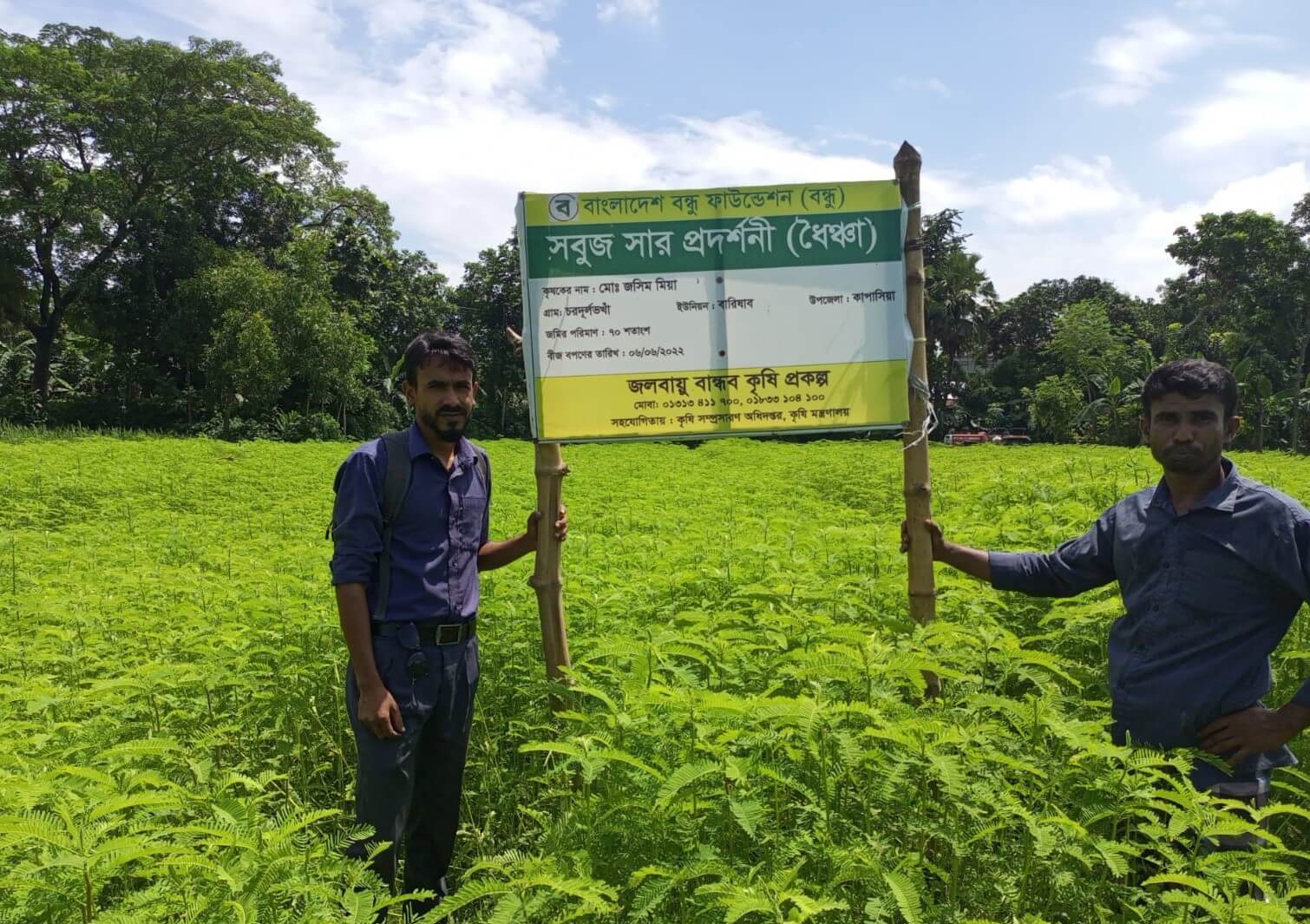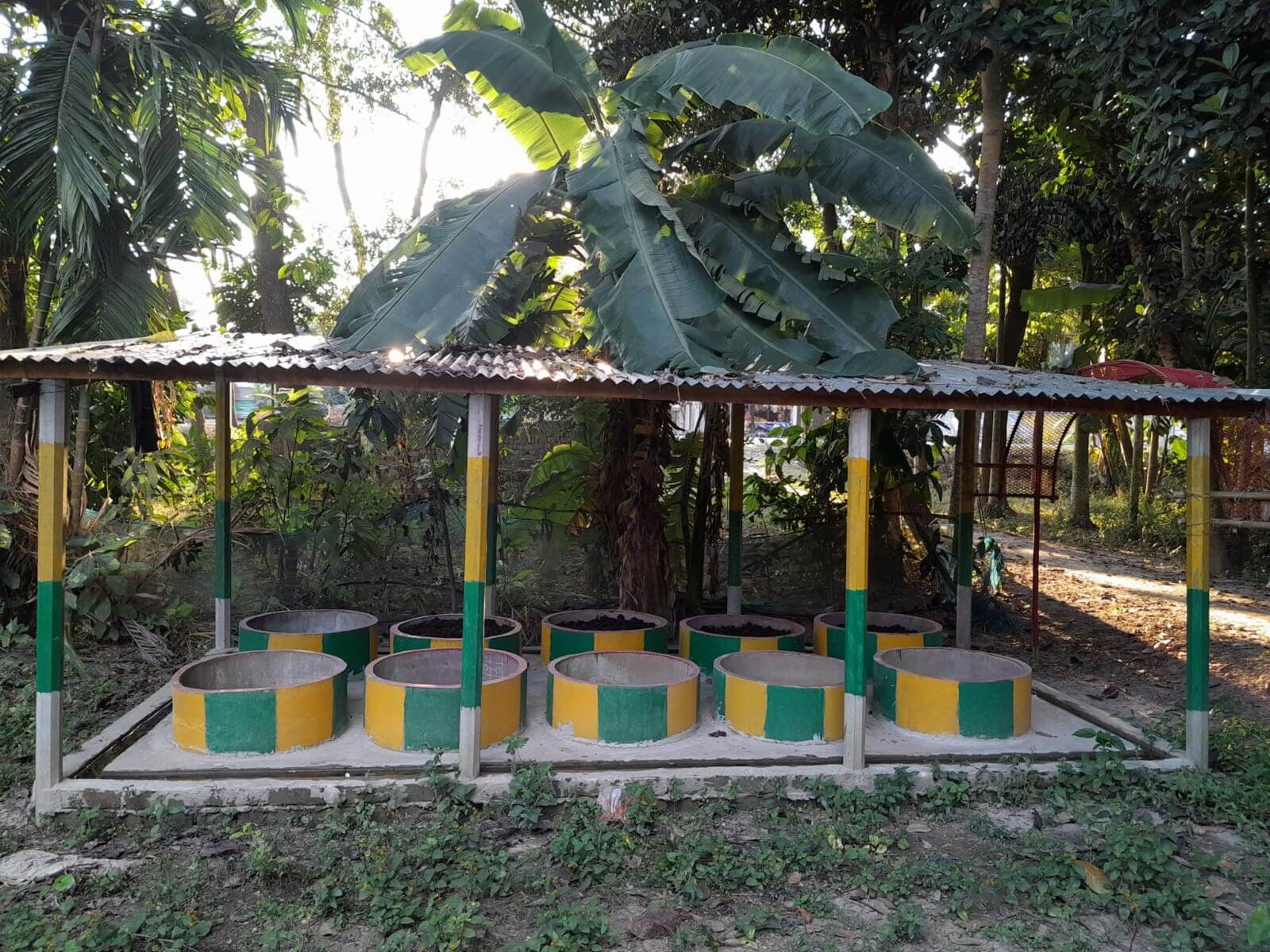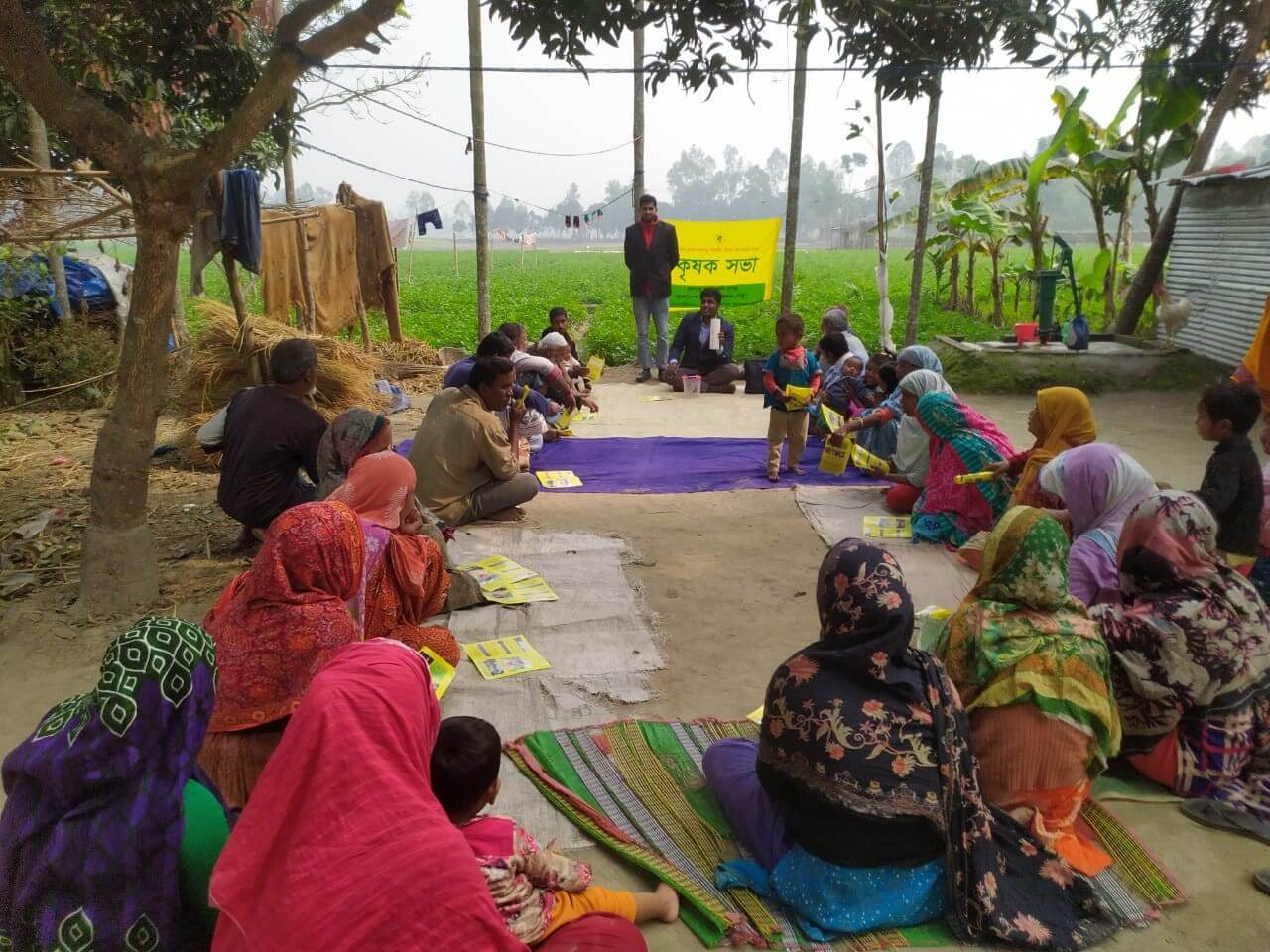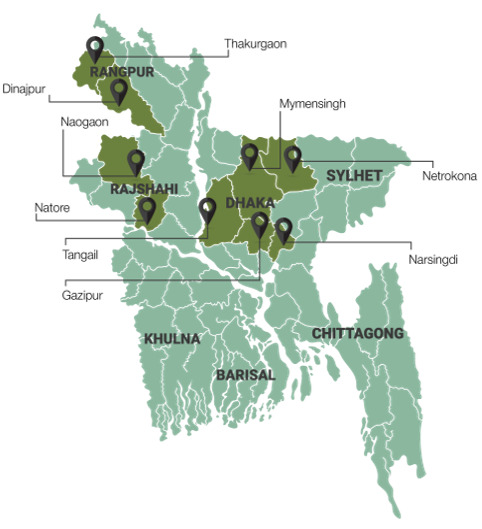
Climate change poses a significant threat to food security and risks agricultural production. In response to this challenge, the Bangladesh Bondhu Foundation (BONDHU) has launched the Climate-Friendly Agriculture Project. This initiative aims to address climate change and mitigate its adverse effects while ensuring food security in Bangladesh.
To implement the project effectively, BONDHU has taken two key initiatives:
BONDHU is working with smallholder farming communities to promote regenerative agriculture practices. This approach focuses on sustainable farming methods that not only enhance agricultural productivity but also contribute to mitigating the impacts of climate change.
Another aspect of the project involves promoting climate-friendly paddy cultivation methods in Bangladesh. By adopting practices that are resilient to climate change, such as efficient water management and sustainable cultivation techniques, BONDHU aims to safeguard paddy production and enhance overall agricultural resilience.
Excessive use of chemical fertilizers, pesticides, and groundwater adversely affects agriculture. The amount of organic matter in the soil is decreasing, environmental pollution and agricultural biodiversity are endangered, and the micro-organisms in the soil are decreasing. The irrigation water crisis is supposed to occur as the groundwater level is falling day by day. Hence, climate action is an emergency, and climate-resilient technologies should be introduced and implemented immediately. To respond to climate action and fight climate change, the Bangladesh Bondhu Foundation (BONDHU) has been implementing Climate-friendly Agriculture projects in different areas of Bangladesh.
Project Area: 1,40,000 Hectare
Duration of Project: 2022-2030 (8 Years)

♣ Producing safe food through various environmentally friendly techniques without using chemical pesticides in crop fields; Insect control using twigs, light traps, sex pheromone traps, yellow glue traps, organic pesticides (e.g. Bionym plus, Phytomax, Nimbicidin, Tracer, Success, etc.);
♣ Irrigating in wetting and drying method periodically
♣ Ensuring moderate use of chemical fertilizers, especially urea fertilizers
♣ Producing and using large quantities of organic manure, such as compost, vermicompost, green manure, etc.
♣ Introducing a drip irrigation system for vegetables, spices, crops, and fruits as well as saving irrigation water by mulching or covering the vegetable field bed with straw/water hyacinth
Currently, 2500-4000 liters of water is used for producing per kg paddy. In most cases, irrigation is performed with groundwater. As a result, on the one hand, the groundwater level is going down day by day and the fertility of the land is decreasing, on the other hand, the methane gas emissions from the paddy fields are increasing due to submergence which is one of the main causes of climate change. To get rid of this condition, it is necessary to prevent the wastage of irrigation water. To this end, the following activities have been undertaken under the Climate-Friendly Paddy Cultivation in Bangladesh-
♠ Providing Alternate Wetting and Drying (AWD) irrigation in paddy fields. This method can save up to 28-30% of water, abate the cost of irrigation by 30-50%, and de-escalate the emissions of methane gas from paddy fields by about 30-40%.
♠ Minimising the use of chemical fertilizers in paddy cultivation and enhancing the use of organic and green fertilizers. Especially reducing the use of nitrogen-rich urea fertilizers;
♠ Encouraging farmers to adopt an environmentally friendly Integrated Pest Management (IPM) strategy by minimizing random and unreasonable use of pesticides in paddy fields.
Amount of Project Area: 2,00,000 Hectare

BONDHU has been adopting the following strategies for the implementation of the two projects:
♣ Skill development- Manpower training of the project, farmer's training, etc.
Bangladesh Bondhu Foundation (BONDHU) is implementing the two projects in collaboration with the Department of Agricultural Extension (DoE) and with different union parishads of Bangladesh.
Contact us for more information
+88 01313 411 700, +88 01313 411 000.

Presently, BONDHU is implementing its environmentally sustainable agriculture initiative across nine districts in Bangladesh: Thakurgaon, Dinajpur, Naogaon, Natore, Tangail, Mymensingh, Netrokona, Gazipur, and Narsingdi.
Project Duration: 2022 - 2030
Reach out us if you are committed to working for climate action and intend to bring a positive change in the environment of Bangladesh through mitigation and adaptation to climate change and want to fight environmental degradation together.